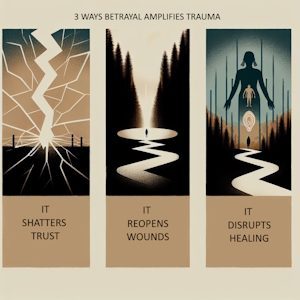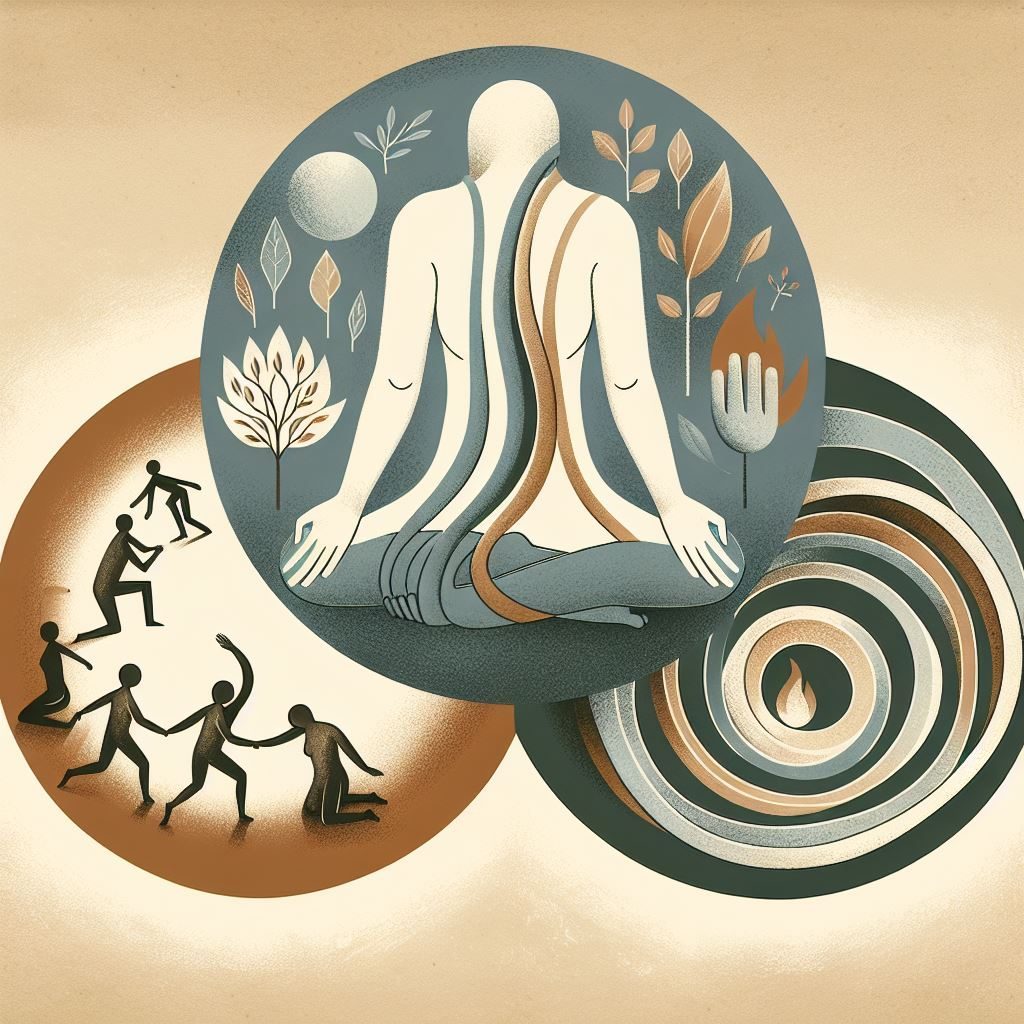3 Ways to Mitigate the Impact of Betrayal
Restore Safety Through the Body: Neuro-Muscular Lock Theory
Somatic Experiencing (Peter Levine), Polyvagal Theory (Stephen Porges), and Trauma and Memory (Bessel van der Kolk) all emphasize that trauma is rooted in the body and nervous system rather than just the mind. These approaches highlight how trauma disrupts the body’s natural responses to threat, leading to chronic dysregulation, tension, and fragmented memory. Healing involves restoring nervous system balance, completing defensive responses, and integrating traumatic experiences through body-based therapies and social connection. Together, they offer a holistic view of trauma that bridges physiology, memory, and emotional regulation. This approach is especially powerful for communities where verbal therapy may not be culturally resonant or accessible. By working through the body, healing becomes a decolonial act—reclaiming the body as a site of wisdom, not just pain.
Create Collective Containers for Grief and Accountability
Betrayal isolates. Healing must reconnect. Community-based healing circles, truth-telling rituals, and restorative justice processes can help transform betrayal into an opportunity for deeper connection. These spaces allow for grief to be witnessed, accountability to be practiced, and trust to be slowly rebuilt.
Importantly, these containers must be culturally grounded. For example, Indigenous communities may use sweat lodges, talking circles, or land-based ceremonies. The goal is not to erase the betrayal but to metabolize it in a way that strengthens rather than fractures the collective.
Embed Trauma Literacy in Decolonization Work
Too often, movements for justice focus on external change without addressing internal wounds. But unhealed trauma can sabotage even the most righteous causes. Leaders burn out. Communities implode. Movements fracture.
To mitigate betrayal’s impact, trauma literacy must be embedded in every layer of decolonization work—from leadership training to conflict resolution. This means understanding how trauma shows up in behavior, how to respond without re-traumatizing, and how to build systems that prioritize care over punishment.
Closing Thoughts
Betrayal is inevitable in any human endeavor. But when it intersects with historical trauma and systemic oppression, its impact can be devastating. Recognizing betrayal as a trauma amplifier—and addressing it through embodied, collective, and culturally grounded practices—is essential for any decolonized future worth building.
Decolonization is not just about what we dismantle. It’s also about what we heal. And healing begins in the body, in community, and in truth.



